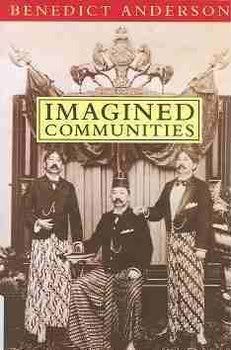"Why economists love empires
In a speech last year at Oxford University, Manmohan Singh, India's prime minister, caused a stir in his homeland by noting a few "beneficial consequences" of India's years under British rule, including its free press, its civil service and its "notion" of the rule of law. But he also pointed out that India, one of the world's biggest economies in 1700, was impoverished by the time the British left.
However mixed empire's legacy in India, imperialism has recently provided a rich feast for economists. Their interest lies not just in totting up the balance sheet of colonial rule—although that can be fascinating. They are after even bigger game: an explanation of why some countries grow rich and others do not. Of the many proposed solutions to that riddle (technology, geography, the Protestant ethic) the current favourite is rather bland in the abstract: "institutions". In rich economies institutions—meaning the formal laws and unwritten rules that govern society—function rather well on the whole. In poor ones they don't. That much is indisputable.
What is tricky is showing that good institutions are a cause of economic progress rather than a by-product of it. You cannot run controlled experiments in which a particular institution is randomly imposed on some countries, but not on others, in order to compare how they fare. Or at least economists can't. But perhaps imperialists can. Maybe the colonial adventures of the past provide the natural experiments economists need to put their theories to the test.
The imperial powers certainly generated a lot of institutional variety, sprinkling Spanish vassalage, British indirect rule and American paternalism across the globe. But was this variation random? Surely not. Imperialists vied to plant their flag in the most lucrative spots, wherever the spices were rich or the sugar cane tall. Thus a conundrum remains: if, say, America's former colonies have prospered compared with Spain's, was this because America bequeathed the best institutions, or because it found the most promising areas of the world to colonise?
What is ingenious about the recent economic studies of empire is how they overcome this problem. Imperial institutions may determine prosperity, but the reverse may also be true. The trick is to find some third factor that is securely linked to institutions, but entirely unconnected to economic success. Such factors are called "instrumental variables", because the economist is interested in them not for themselves, but for what they tell him about something else.
That name, however, now seems quite ironic. Because all of the fun in the recent spate of papers is in the instruments themselves. Economists are outdoing each other with ever more curious instruments, ranging from lethal mosquitoes to heirless maharajahs, or, most recently, wind speeds and sea currents.
Guam, which became a Spanish colony in the 17th century and an American one at the end of the 19th, was discovered in 1521 after winds and swells carried Ferdinand Magellan, the Portuguese-born explorer, to its shores. In a recent study of 80 such islands, all but one of which eventually fell under the imperial yoke, James Feyrer and Bruce Sacerdote of Dartmouth College argue that winds and currents dictated which islands were colonised when. The early colonialists went where their sails took them; only after steamships became the norm in the 19th century could they travel against the wind.
As a result, some islands were colonised early, some late, for reasons that had much to do with meteorology, and rather little to do with any other intrinsic attractions the islands might offer. The two authors show that the accessible islands, which lay on natural sailing routes, have prospered relative to the others. They put this down in part to the longer period these islands spent under colonial rule. A century as a colony is worth a 40% increase in today's GDP, they argue.
But as the authors point out, this striking result disguises a more disturbing fact. On many islands the original population was decimated, or worse, by European contact. After the Spanish colonised Puerto Rico in 1505, the native population fell from 60,000 to 1,500 within 30 years. The island may have since prospered, but the original islanders did not.
The study paints the British as relatively benign rulers compared with the Iberians. But instruments can cut both ways. Lakshmi Iyer of Harvard has used the technique to reveal some unhappy consequences of the Raj that might have made Mr Singh's Oxford audience squirm. The British, she points out, did not wrest direct control of India all at once. From 1848 to 1856, for example, the governor-general pursued a "doctrine of lapse", taking charge of states whenever the native ruler died without an heir. These states, then, came under British rule as a result of patrilineal misfortune, not economic potential. Ms Iyer shows that such areas had fewer schools, clinics and roads as a result of British rule. The effects lingered into the 1980s.
Once just an obscure statistical method, instrumental variables are now popping up all over the place. Daniel Hamermesh, a labour economist at the University of Texas, has joked about the "instrument police", who patrol empirical economics, forever suspicious that causality may run both ways. Indeed, "reverse causality", which was once a frustrating problem, is now seen as a chance to demonstrate ingenuity. Instruments have brought colour to the study of institutions, and sharpened the debate over colonialism, without really resolving it. But whatever the claims of empire, the instrumental variable now enjoys an almost imperial grip on the imagination of economists."





